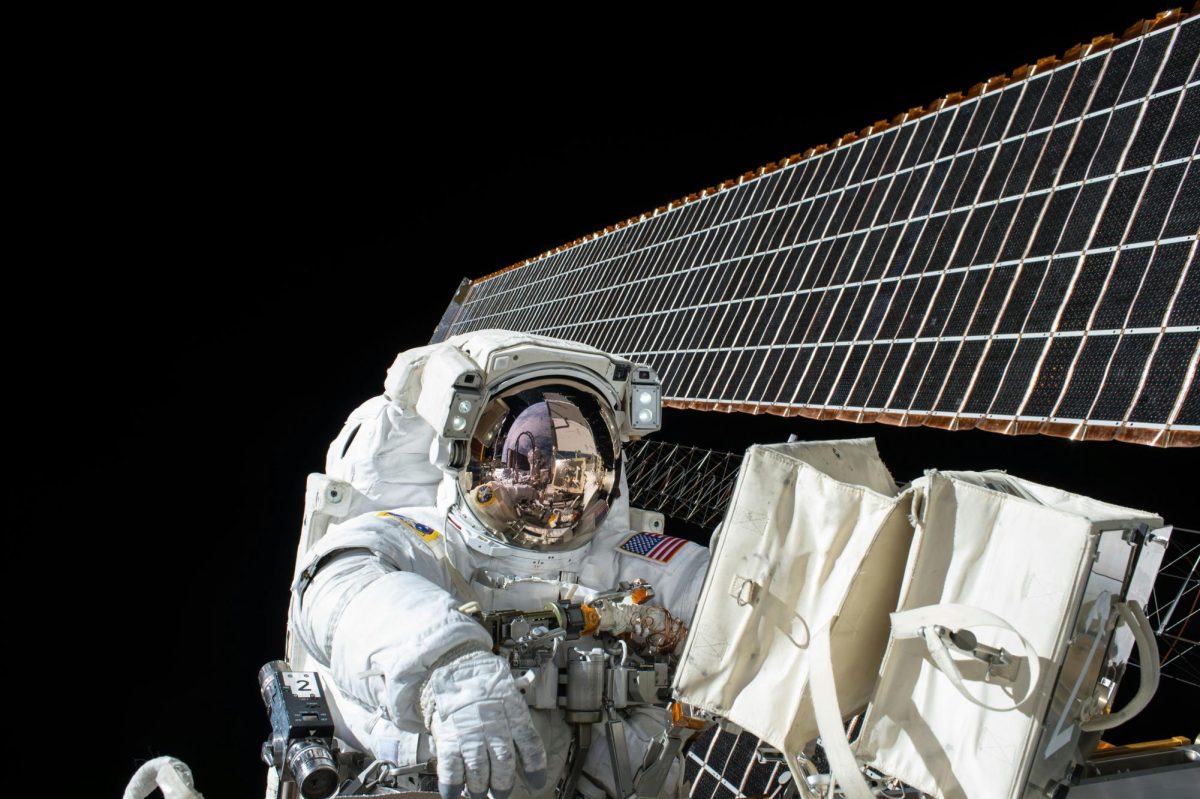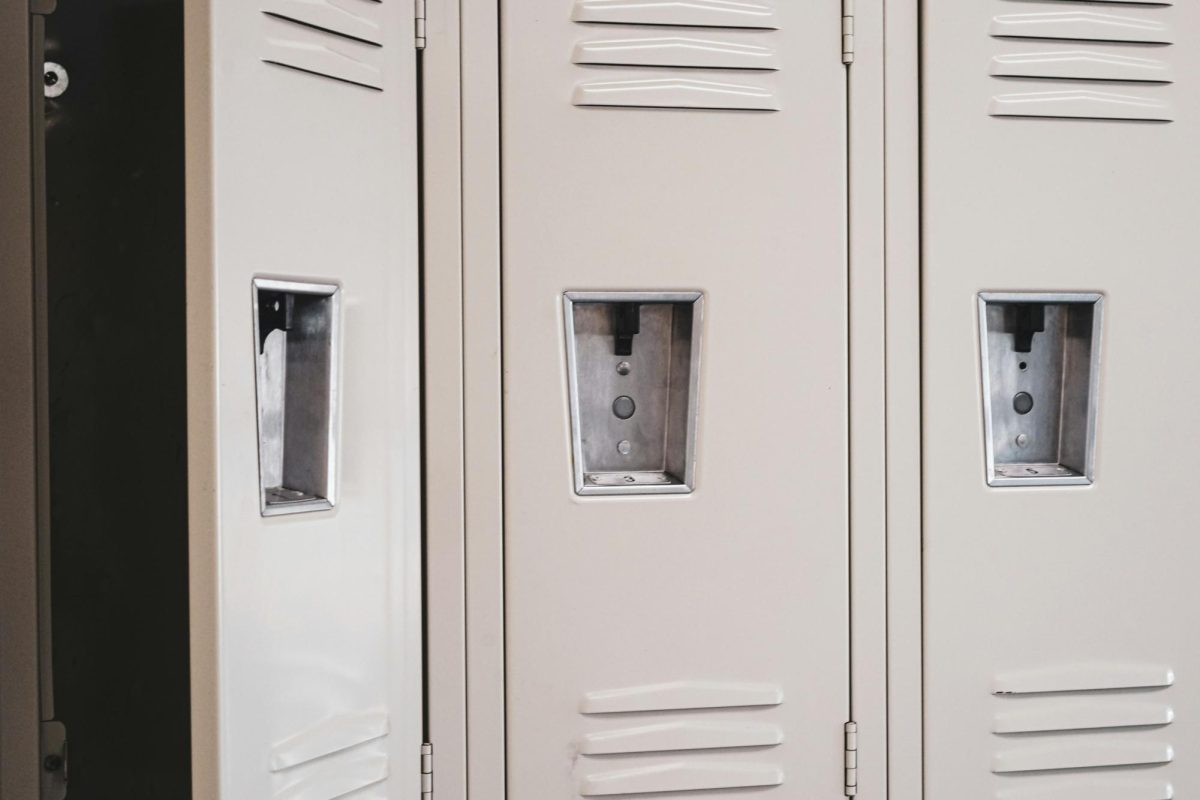This article was originally published by Cape Fear Voices/Teen Scene. It has been republished with permission as part of We Are’s international student voice partnership.
Reprinted with permission from Brunswick County Early College High School’s The Firebird Times.
Humanity has always been obsessed with space. Whether it has been about traveling there, sending things up to space, or even just looking up into the stars. Space is a topic that will always fascinate humans.
Today, we are traveling to space all the time. Heck, we have people living in space on the ISS. But that brings the question, should space travel be funded by the government? According to former NASA engineer Mark Rober in his video titled Is NASA a waste of money?, NASA receives less than one percent of the US government’s total budget every year. Rober also states that that is about nine dollars of what every American pays in taxes every year.
In his video, Rober also states that “Reaching for new heights often creates new solutions and opportunities for people back on the ground”. What he is saying with this quote is that by going into space we could discover or create things like jobs that could help people who are on the ground out more.
Rober mentions a NASA project titled Double Asteroid Redirection Test (DART). In 2022, NASA launched a spacecraft named DART which’s sole purpose was to collide with an asteroid and attempt to redirect the celestial body. DART successfully impacted its asteroid target on the evening of September 26, 2022. DART would be a beneficial example of space exploration because we were able to learn enough about asteroids and their orbit in order to prevent a possible collision.
The last thing that Rober mentions is private companies. He states that while private companies are great because they have more money than NASA, private companies are more incentivized to pursue stuff that would help them financially like asteroid mining or space tourism, while NASA is focused on stuff that could help humanity like DART.
NASA themselves posted an article on their website titled Benefits Stemming From Space Travel. One benefit that space travel can give would be knowledge. “To a great extent, the benefits from space exploration are rooted in the generation of new knowledge, which is the first reward and which has inherent value to humankind.” NASA also states that space exploration can provide jobs for people.
Space exploration can also help people in the form of innovation. An example of this would be an exo suit that NASA helped create based on robotics used in space travel, this exo suit can help paralyzed people walk again.
ECHS science teacher Lorry Henry believes that space travel should be run by the government instead of by private companies. She brought up some of the same issues that Mark brought up in his video.
Henry also stated that she watched the first moon landing when she was a kid and that she actually applied to be on the Challenger spaceship which was a space shuttle that’s purpose was to launch some tracking satellites. The crew consisted of 6 astronauts and a school teacher. Sadly, the shuttle did not make it into space before exploding.
Henry believes that besides obtaining resources, the benefits to space travel are unlimited. “Exploration is worthwhile but other than that space travel is vital” to quote Henry. Henry also states that while she was growing up, so was space travel. She was there to watch space travel develop over the years, from watching the first moon landing to watching a rover being sent to Mars, she was there.
A student-made article by Will Carney titled, “Should NASA’s Budget Be Increased?” states, “A recent study has shown that in 2019, NASA generated over $64.3 billion and supported over 300,000 jobs while the agency’s budget stood at $21.5 billion.” That alone can prove that NASA isn’t worthless and can produce big money for the US government.
Carney also states, “Currently NASA’s annual budget for this year stands at $24.04 billion which is just 0.48% percent of government spending.” This area of importance is also brought up by Rober in his video Is NASA a waste of money? Based on these points, A person could only imagine how much money NASA could bring in or what they could discover with a budget increase.
Carney believes this as well, “an increase in NASA’s budget would allow for more contracts to be given out to other aeronautics companies like SpaceX, ULA, Blue Origin, Boeing, Lockheed Martin, Northrop Grumman, and more. These companies can build more technologically capable probes, rockets, satellites, and other spacecraft hardware.” With more money, the possibilities would be almost endless when it comes to space, who knows what NASA could do if they had the money that the US government spends on the military every year.
Another thing that space travel may bring would be the colonization of other planets. The benefits of this would actually be endless, we could get new resources, we could sustain much more life, and we could do so much more.
According to the NASA article Benefits Stemming From Space Travel, NASA believes that space travel could help them produce better robotic systems that could help both people on Earth and in space. NASA also believes that they could create better power efficiency for life on Earth and for the spacecraft.
Rebecca Gaskins, manager and presenter at The Ingram Planetarium brought up points of space mining and why that should be led by public companies like NASA. “[Private companies] take brilliant people and grind them into the ground because it’s a very corporate culture and they are only focused on making a profit. I feel like profit-driven exploration is always going to be a little risky because people can be really terrible and exploitative in pursuit of profit.” Gaskins’ point on whether private companies should lead space travel is very similar to what Rober said in his video, basically just stating that private companies may be more incentivized to pursue more profitable things rather than discovering new things that would benefit humanity.


















